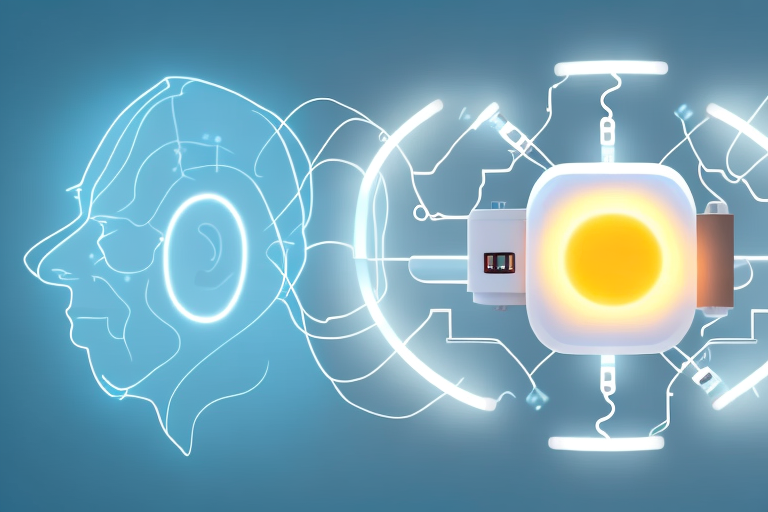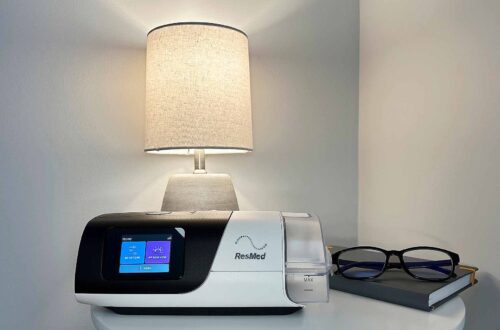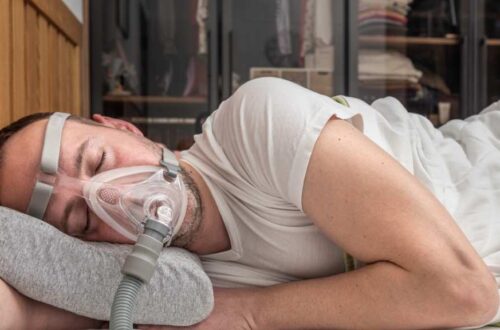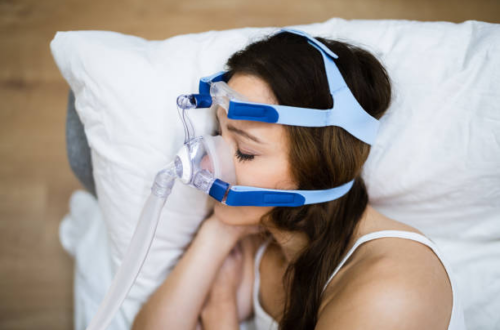
How Sleep Apnea Machines Improve Daily Performance and Energy Levels
Sleep apnea is a common sleep disorder that affects millions of people worldwide. If you are someone who experiences this condition, you may know firsthand the negative impact it can have on your daily performance and energy levels. Fortunately, there are sleep apnea machines available that can greatly improve these aspects of your life. In this article, we will delve into the science behind sleep apnea, the role of sleep apnea machines, and the connection between sleep apnea and daily performance. We will also explore how sleep apnea machines can boost energy levels and discuss the long-term benefits of using these devices.
Understanding Sleep Apnea
Sleep apnea is a sleep disorder characterized by periodic interruptions in breathing during sleep. These interruptions, known as apneas, can occur multiple times throughout the night and result in disrupted sleep patterns. There are several types of sleep apnea, including obstructive sleep apnea, central sleep apnea, and complex sleep apnea syndrome.
The Science Behind Sleep Apnea
Obstructive sleep apnea is the most common form of sleep apnea and is typically caused by the relaxation and collapse of the muscles in the throat, which obstructs the airway. This obstruction leads to a decrease in oxygen levels in the blood, causing the brain to momentarily wake up to restore proper breathing. These repeated awakenings disrupt the natural sleep cycle and prevent the individual from entering deep, restorative sleep stages.

During an apnea episode, the individual may experience a brief pause in breathing, lasting for a few seconds to a minute. This interruption in breathing can happen multiple times per hour, leading to fragmented and poor-quality sleep. As a result, individuals with sleep apnea often wake up feeling tired and groggy, despite having spent the recommended number of hours in bed.
Furthermore, the interrupted breathing during sleep can have detrimental effects on the body. The decrease in oxygen levels can put strain on the cardiovascular system, increasing the risk of high blood pressure, heart disease, and stroke. Sleep apnea has also been linked to other health conditions such as diabetes, obesity, and depression. Click here to read more about The Role of Humidity and Sleep Apnea Machines: Why It Matters.
Common Symptoms of Sleep Apnea
Identifying the symptoms of sleep apnea is crucial in seeking appropriate treatment. Some common signs of sleep apnea include loud snoring, gasping for air during sleep, excessive daytime sleepiness, morning headaches, and difficulty concentrating. However, it is important to note that not all individuals with sleep apnea experience these symptoms, and some may exhibit different signs.
In addition to the physical symptoms, sleep apnea can also impact an individual’s emotional well-being. The chronic sleep deprivation caused by the disorder can lead to irritability, mood swings, and difficulty managing stress. Relationships may also be affected, as the loud snoring and sudden awakenings can disrupt the sleep of bed partners.
If left untreated, sleep apnea can have serious consequences on your physical and mental well-being. It is important to consult with a healthcare professional if you suspect you may have sleep apnea, as early diagnosis and treatment can greatly improve your quality of life.
The Role of Sleep Apnea Machines
Sleep apnea machines, also known as continuous positive airway pressure (CPAP) machines, are considered the gold standard in the treatment of sleep apnea. These devices work by delivering a constant flow of air pressure through a mask worn over the nose and/or mouth, effectively keeping the airway open during sleep.
But what exactly is sleep apnea? Sleep apnea is a common sleep disorder characterized by pauses in breathing or shallow breaths during sleep. These pauses can last from a few seconds to minutes and can occur multiple times throughout the night. Sleep apnea not only disrupts the quality of sleep but can also have serious health consequences if left untreated.
There are three main types of sleep apnea: obstructive sleep apnea (OSA), central sleep apnea (CSA), and complex sleep apnea syndrome (CSAS). OSA is the most common form and occurs when the airway becomes partially or completely blocked during sleep, leading to breathing difficulties. CSA, on the other hand, is caused by a failure of the brain to transmit the proper signals to the muscles that control breathing. CSAS is a combination of both OSA and CSA.
Different Types of Sleep Apnea Machines
There are several types of sleep apnea machines available, including standard CPAP machines, bilevel positive airway pressure (BiPAP) machines, and automatic positive airway pressure (APAP) machines. Each type of machine has its own unique features and benefits. Consulting with a sleep specialist can help determine the most suitable type for your specific needs.
Standard CPAP machines deliver a constant and continuous air pressure, which helps to keep the airway open throughout the night. BiPAP machines, on the other hand, provide two levels of pressure: a higher pressure during inhalation and a lower pressure during exhalation. This can be beneficial for individuals who have difficulty exhaling against a constant pressure. APAP machines, also known as auto-adjusting machines, automatically adjust the pressure based on the individual’s needs throughout the night.
How Sleep Apnea Machines Work
Sleep apnea machines deliver a continuous stream of pressurized air that gently blows into the airway, preventing any collapse or obstruction. This continuous airflow helps to maintain an open airway throughout the night, ensuring uninterrupted breathing and a restful sleep. The machines are also equipped with filters that purify the air, preventing the inhalation of irritants and allergens.
But how does the machine know the right amount of pressure to deliver? Sleep apnea machines are typically set up and calibrated by a sleep specialist or technician. They use various measurements and data, such as the severity of the individual’s sleep apnea, to determine the optimal pressure settings. These settings can be adjusted over time to ensure the most effective treatment.
It’s important to note that using a sleep apnea machine may take some time to get used to. Wearing a mask and having a constant flow of air can initially feel uncomfortable for some individuals. However, with time and practice, most people adapt to the machine and experience significant improvements in their sleep quality and overall well-being.
In addition to the immediate benefits of improved sleep, using a sleep apnea machine can also have long-term health benefits. By effectively treating sleep apnea, individuals can reduce their risk of developing other health conditions such as high blood pressure, heart disease, stroke, and diabetes. It can also help alleviate symptoms such as daytime fatigue, morning headaches, and difficulty concentrating.
Overall, sleep apnea machines play a crucial role in the management and treatment of sleep apnea. They provide a non-invasive and effective solution for maintaining an open airway during sleep, ensuring uninterrupted breathing and a restful night’s sleep. If you suspect you may have sleep apnea, it is important to consult with a healthcare professional who can guide you through the diagnosis and treatment process.
The Connection Between Sleep Apnea and Daily Performance
Living with untreated sleep apnea can have a significant impact on your daily performance and overall quality of life. The interruption of the natural sleep cycle and the subsequent lack of restorative sleep can result in cognitive impairments, decreased concentration, decreased productivity, and increased risk of accidents and errors.
When it comes to cognitive functions, studies have shown that individuals with sleep apnea often experience cognitive dysfunction, including difficulties with memory, attention, and executive function. The effects of sleep deprivation caused by untreated sleep apnea can impair the brain’s ability to process information and consolidate memories, leading to decreased mental clarity and performance.
But it’s not just cognitive functions that are affected by sleep apnea. Physical performance can also be impacted. The fragmented sleep caused by sleep apnea can lead to muscle fatigue, decreased stamina, and decreased physical endurance. This can be particularly detrimental for athletes and individuals who engage in regular physical activities.
Imagine trying to perform at your best in a marathon or a basketball game when your body hasn’t had the chance to fully recover and recharge during sleep. The lack of restorative sleep caused by sleep apnea can leave you feeling sluggish, with decreased energy levels and reduced physical capabilities.
Furthermore, the effects of sleep apnea on physical performance extend beyond just sports and physical activities. In everyday life, tasks that require physical exertion, such as household chores or even walking up a flight of stairs, can become more challenging and exhausting for individuals with sleep apnea.
It’s important to note that the impact of sleep apnea on daily performance is not limited to cognitive and physical aspects. Sleep apnea can also affect emotional well-being and overall mood. The constant fatigue and lack of quality sleep can contribute to feelings of irritability, mood swings, and even depression.
Addressing sleep apnea and seeking treatment is crucial for improving daily performance and overall quality of life. By effectively managing sleep apnea, individuals can experience improved cognitive functions, increased energy levels, enhanced physical performance, and a better overall mood.
Sleep Apnea Machines and Energy Levels
One of the most significant benefits of using sleep apnea machines is the positive impact they have on energy levels. When sleep apnea is effectively treated, individuals often experience increased daytime alertness, improved cognitive function, and improved overall mood.
The Effect of Sleep Apnea on Energy Levels
Untreated sleep apnea can leave you feeling exhausted and drained, even after a full night’s sleep. The frequent awakenings and interruptions in breathing prevent you from reaching deep, restorative sleep stages, which are essential for rejuvenating the body and mind. This can result in chronic fatigue and a lack of energy throughout the day.
How Sleep Apnea Machines Boost Energy
By effectively treating sleep apnea, sleep apnea machines help to restore healthy sleep patterns and improve energy levels. The continuous airflow provided by the machines ensures that the airway remains open and unobstructed, allowing for uninterrupted breathing and restful sleep. As a result, individuals using sleep apnea machines often report feeling more energized and alert during the day.
Long-Term Benefits of Using Sleep Apnea Machines
Using sleep apnea machines not only provides immediate relief from the symptoms of sleep apnea but also offers long-term benefits that can greatly enhance your quality of life.
Improved Quality of Life
By effectively treating sleep apnea, individuals experience improved overall quality of life. The restoration of restful sleep leads to increased vitality, improved mood, and enhanced mental and physical well-being. Relationships may also benefit, as untreated sleep apnea can cause irritability and mood swings, which can strain personal and professional interactions.
Preventing Serious Health Complications
Untreated sleep apnea has been linked to several serious health complications, including cardiovascular diseases, high blood pressure, stroke, and diabetes. By using sleep apnea machines, individuals can significantly reduce their risk of developing these potentially life-threatening conditions.
In conclusion, sleep apnea machines play a crucial role in improving daily performance and energy levels for individuals with sleep apnea. These devices effectively treat the underlying causes of sleep apnea, allowing for uninterrupted breathing and restful sleep. By restoring healthy sleep patterns, sleep apnea machines positively impact cognitive functions, physical performance, and overall energy levels. Additionally, the long-term benefits of using sleep apnea machines include improved quality of life and a reduced risk of serious health complications. If you suspect that you may have sleep apnea, it is important to seek medical evaluation and consider the benefits of sleep apnea machines in improving your well-being.





